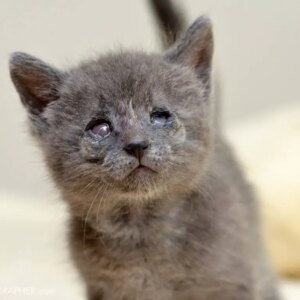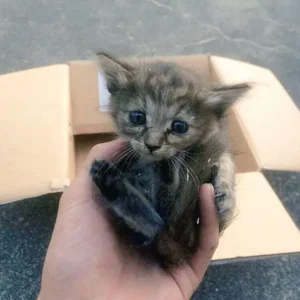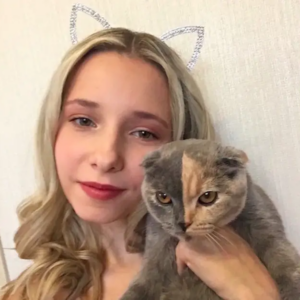Did you know that approximately 60% of cats in the United States are overweight or obese? This alarming statistic should serve as a wake-up call for cat owners everywhere. Maintaining a healthy cat weight is crucial for your feline companion’s overall well-being and longevity.
But how exactly can you ensure that your cat stays fit and trim? In this article, we will provide you with expert tips and tricks on how to keep your cat at a healthy weight.
Understanding your cat’s ideal weight is the first step towards helping them achieve optimal health. From there, it’s all about providing a balanced diet that meets their nutritional needs without excess calories.
Controlling treats and snacks, establishing a regular feeding schedule, and encouraging physical activity are also essential components of maintaining a healthy weight.
Additionally, creating a safe and stimulating environment can help prevent boredom-induced overeating.
By following these evidence-based strategies, you can make sure that your furry friend remains in tip-top shape for years to come. Let’s dive in and discover the secrets to keeping your cat at a healthy weight!
Understand Your Cat’s Ideal Weight
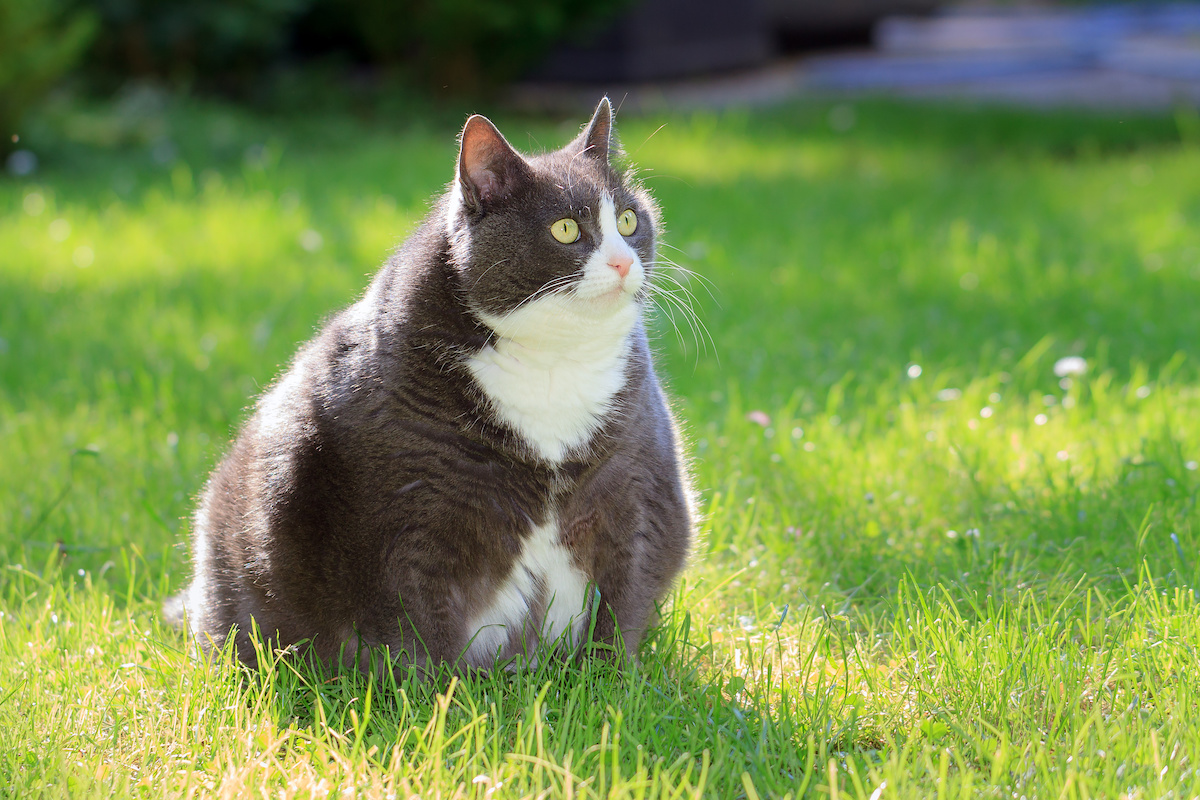
Do you know how to determine your cat’s ideal weight? Understanding weight gain and preventing obesity in cats is crucial for their overall health and well-being.
Just like humans, cats can also struggle with weight issues, which can lead to various health problems. To identify your cat’s ideal weight, you should consult with your veterinarian. They can assess their body condition score based on factors such as ribs visibility and waist definition. This will help you understand if your cat is underweight, overweight, or at a healthy weight.
By knowing their ideal weight range, you can then take appropriate steps to maintain it through portion control and regular exercise. Providing a balanced diet plays a vital role in achieving this goal and keeping your feline friend healthy and happy without compromising their nutritional needs.
Provide a Balanced Diet
To maintain a well-rounded feline diet, strive for a mix of nutritious and nourishing ingredients. A balanced diet is crucial for keeping your cat at a healthy weight. Here are five essential components to include in their meals:
High-quality protein: Choose lean meats like chicken or turkey to provide the necessary amino acids.
Healthy fats: Incorporate omega-3 fatty acids from sources like fish oil, which promote a glossy coat and support overall health.
Fiber-rich carbohydrates: Opt for whole grains, vegetables, and fruits to aid digestion and prevent constipation.
Essential vitamins and minerals: Include a variety of nutrient-dense foods to ensure your cat gets all the necessary nutrients.
Adequate hydration: Always provide fresh water and consider adding wet food to increase moisture intake.
By following these guidelines for a balanced diet with proper portion control, you can help your cat maintain a healthy weight.
Now let’s move on to controlling treats and snacks without compromising their dietary needs.
Control Treats and Snacks
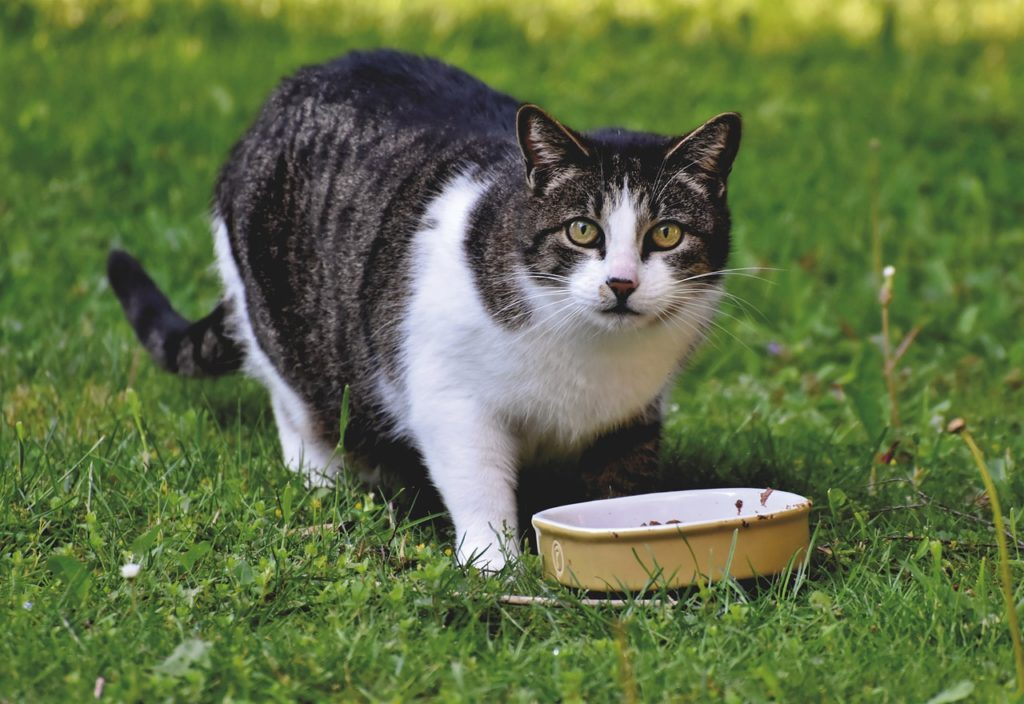
To maintain a healthy weight for your cat, it’s important to control treats and snacks. Limiting unhealthy treats such as those high in fat or sugar can help prevent weight gain and keep your feline friend in good shape. Instead, opt for healthy alternatives like small pieces of lean meat or vegetables that are safe for cats to eat.
Limit unhealthy treats
One way to ensure your cat maintains a healthy weight is by being mindful of the amount of unhealthy treats you give them. While it’s tempting to spoil your furry friend with tasty snacks, it’s important to remember that excessive treats can contribute to weight gain and other health issues in cats.
Instead, focus on providing healthy treat options and practicing portion control. Opt for low-calorie treats specifically made for cats or consider offering small portions of cooked lean meats like chicken or turkey.
Additionally, you can use interactive toys or puzzle feeders filled with kibble as a form of mental stimulation and reward for your cat. By limiting unhealthy treats and incorporating healthier alternatives into their diet, you can help keep your cat at a healthy weight and promote their overall well-being.
Use healthy alternatives
You can easily swap out unhealthy treats for nutritious alternatives that won’t only satisfy your cat’s cravings but will also contribute to their overall well-being. Using portion control is key when offering treats to your feline friend. Instead of giving them a whole treat, break it into smaller pieces or use a food puzzle toy to make them work for their reward. This will help prevent overeating and keep their calorie intake in check.
Additionally, finding low-calorie options is important. Look for treats that are specifically formulated for weight management or opt for healthy alternatives such as small pieces of cooked chicken or fish. These options aren’t only tasty but also provide essential nutrients without adding unnecessary calories. By making these simple swaps, you can ensure your cat maintains a healthy weight while still enjoying the occasional treat.
Now, let’s move on to the next section about establishing a regular feeding schedule.
Establish a Regular Feeding Schedule
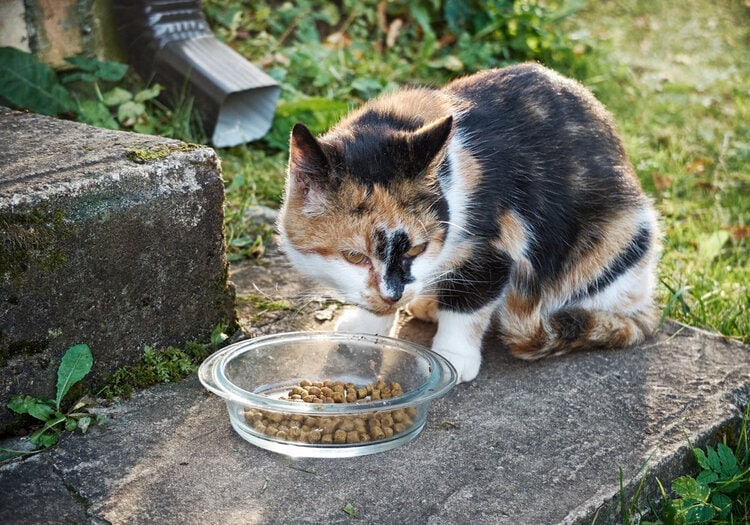
Don’t ignore the importance of establishing a regular feeding schedule for your cat if you want to keep them at a healthy weight. By establishing a routine, you can help regulate their food intake and prevent overeating.
Cats are creatures of habit, so having set meal times can create a sense of structure and control. Additionally, portion control plays a crucial role in maintaining their weight. It’s important to measure out the appropriate amount of food for each meal based on your cat’s size, age, and activity level. This ensures they’re getting the right amount of nutrients without excess calories.
Once you’ve established a regular feeding schedule and portion control, it’s time to encourage physical activity to further support their overall health and well-being.
Transitioning into the subsequent section about “encourage physical activity,” remember that keeping your cat active is just as essential as managing their diet.
Encourage Physical Activity
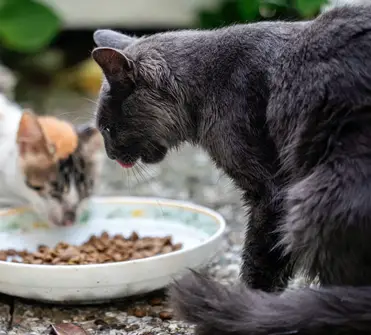
To encourage physical activity in your cat, it’s important to provide interactive toys that stimulate their natural hunting instincts. Toys like feather wands or puzzle feeders can keep them engaged and active.
Additionally, make sure to play with your cat regularly using toys that allow them to chase, pounce, and jump. This not only helps them burn calories but also strengthens their muscles and keeps them mentally stimulated.
Provide interactive toys
Engage your feline friend with interactive toys, like a feather wand or a rolling ball, to keep them entertained and physically active. Interactive toys provide mental stimulation and encourage your cat to move around, helping them burn calories and maintain a healthy weight. These toys mimic natural prey behavior, tapping into your cat’s hunting instincts for an engaging playtime experience.
To further enhance the effectiveness of interactive toys in promoting weight loss, consider incorporating two sub-lists:
Incorporate treat-dispensing toys that require your cat to work for their food, making mealtime more engaging and preventing overeating.
Rotate different types of interactive toys regularly to keep your cat interested and prevent boredom.
By providing stimulating play with interactive toys, you can help your cat shed excess pounds while keeping them mentally engaged. Transitioning seamlessly into the next section about playing regularly will ensure continued physical activity for optimal health.
Play with your cat regularly
Make sure you set aside time every day to play and have fun with your furry companion. Interactive play is not only a great way to bond with your cat, but it also helps keep them at a healthy weight. Cats are natural hunters, so engaging in interactive play can provide mental stimulation while satisfying their instinctual needs. Use toys that mimic prey, such as feathers or laser pointers, to get your cat moving and jumping. This type of play will not only burn calories but also keep your cat mentally stimulated.
Regular play sessions will help prevent boredom and decrease the likelihood of overeating. By incorporating interactive play into your daily routine, you’re providing both physical exercise and mental enrichment for your cat.
Now that you understand the importance of interactive play, let’s discuss how to create a safe and stimulating environment for your feline friend without overwhelming them.
Create a Safe and Stimulating Environment
To create a safe and stimulating environment for your cat, it’s important to provide vertical spaces for climbing. Cats are natural climbers and having access to elevated areas helps them feel secure and exercise their muscles.
Additionally, offering scratching posts and toys is essential in preventing destructive behavior and providing mental stimulation. Scratching posts allow cats to fulfill their instinctual need to scratch while keeping your furniture intact, while toys help keep them active and entertained.
Provide vertical spaces for climbing
Create a tall cat tree with different levels and platforms where your furry friend can climb, perch, and observe their surroundings. Vertical spaces are essential for cats as they allow them to engage in natural climbing behaviors and exercise their muscles.
Cat trees provide the perfect solution by offering multiple perches at various heights. You can easily find floor-to-ceiling cat trees that fit seamlessly into your living room, providing an interactive playground for your cat. These structures not only serve as a great source of entertainment but also help to keep your cat active and mentally stimulated.
In the next section, we’ll discuss how offering scratching posts and toys further contribute to maintaining a healthy weight for your feline companion.
Offer scratching posts and toys
To keep your cat at a healthy weight, it’s important to provide them with vertical spaces for climbing. But that’s not all – offering scratching posts and toys is equally crucial.
Vertical scratching posts serve multiple purposes: they allow cats to stretch their bodies, exercise their claws, and mark their territory. By providing these posts, you’re giving your cat an outlet for natural behaviors while also protecting your furniture from getting scratched.
Additionally, toys play a vital role in keeping your feline friend mentally stimulated. Interactive toys that require problem-solving skills can prevent boredom and encourage physical activity. To evoke excitement and engagement in your cat, consider the following items:
Feather wands
Treat-dispensing puzzles
Laser pointers
Catnip-filled toys
With vertical scratching posts and stimulating toys, you’ll be providing both physical and mental enrichment for your cat.
Now let’s move on to the next section about monitoring your cat’s weight and making necessary adjustments.
Monitor Your Cat’s Weight and Adjust as Needed
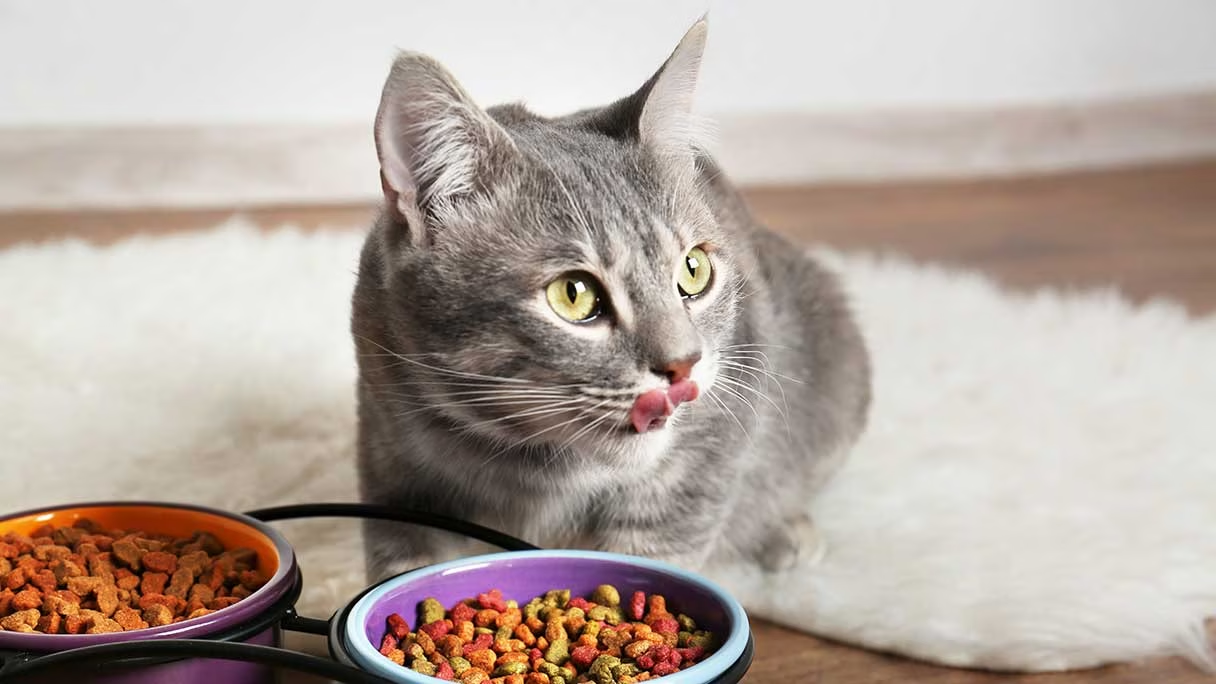
Keep an eye on your furry friend’s weight and make adjustments when necessary to ensure they stay healthy and fit. Monitoring your cat’s weight is crucial in maintaining their overall well-being. Regularly weigh them using a reliable scale and consult with your veterinarian to determine their ideal weight range.
If you notice that your cat is gaining or losing too much weight, it may be time to adjust their diet. Start by evaluating the type and amount of food you’re feeding them. Consider switching to a high-quality, portion-controlled diet specifically formulated for weight management. Additionally, monitor their calorie intake and avoid overfeeding or giving excessive treats.
Increasing exercise and playtime can also help burn off extra calories. Remember, a healthy weight is essential for preventing obesity-related health issues in cats, so stay vigilant in monitoring your feline friend’s weight and adjust their diet as needed.
Frequently Asked Questions
Can I give my overweight cat diet cat food without consulting a veterinarian?
Is it worth the risk to give your overweight cat diet cat food without consulting a veterinarian? While it may seem convenient, there are potential risks and benefits that only a vet can properly assess.
What are some common signs of obesity in cats?
To help your cat lose weight, look out for common signs of obesity such as an inability to feel their ribs, a rounded belly, and difficulty grooming. Create a weight loss plan that includes portion control and regular exercise.
Can I use a food puzzle toy to encourage my cat to exercise?
Using food puzzles for cat exercise is a great way to keep your feline friend fit and entertained. It stimulates their natural hunting instincts and helps prevent obesity. Alternative methods like interactive toys are also effective in promoting exercise.
How can I prevent my cat from begging for food between meals?
To prevent your cat from begging for food between meals, try using training techniques such as positive reinforcement and distraction. You can also consider alternative feeding schedules, like providing smaller meals throughout the day instead of one big meal.
Are there any specific cat breeds that are more prone to obesity?
Some cat breeds, such as the Maine Coon and the Ragdoll, are more prone to obesity. These breeds have a slower metabolism and may require extra attention to maintain a healthy weight.
Conclusion
So there you have it, all the tips and tricks to keep your feline friend at a healthy weight. You now know how important it is to understand their ideal weight and provide a balanced diet. Control treats and snacks, establish a regular feeding schedule, and encourage physical activity. Create a stimulating environment and monitor their weight constantly.
With these strategies in place, you can ensure that your cat stays fit and happy. Who knew that maintaining your furry companion’s health could be such an ironic balancing act?
Read more:
The Best Foods For Your Cat’s Health And Longevity
Understanding Your Cat Instincts
